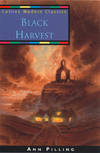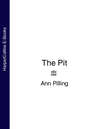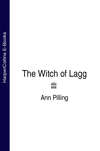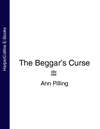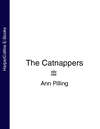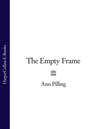Kitabı oku: «Black Harvest»
Black Harvest
by
Ann Pilling

illustrated by
David Wyatt

For E. I. C.
1916–1963
Contents
Cover
Title Page
Dedication
Chapter One
Chapter Two
Chapter Three
Chapter Four
Chapter Five
Chapter Six
Chapter Seven
Chapter Eight
Chapter Nine
Chapter Ten
Chapter Eleven
Chapter Twelve
Chapter Thirteen
Chapter Fourteen
Chapter Fifteen
Chapter Sixteen
Chapter Seventeen
Chapter Eighteen
Chapter Nineteen
Chapter Twenty
Postscript
About the Author
Also by the Author
Copyright
About the Publisher

Chapter One
“CAN YOU STOP the car? I’m going to be sick,” moaned Oliver.
“Not again,” Prill muttered, under her breath. It was the third time since Dublin.
Mr Blakeman pulled off the road, slammed the brakes on, and jumped out, grabbing Oliver and steering him towards a clump of grass. The sudden jolt had woken the baby and she was wriggling in her mother’s arms, making the dry-throated complaining noise that was usually followed by a great bawl. By now she must be both hungry and wet. Before too long they’d have to stop yet again and get the nappies out. They were never going to reach Dr Moynihan’s bungalow at this rate.
From the front seat Colin sneaked a quick look at his cousin. This car business was getting ridiculous. Nobody could help being sick, but by now Oliver couldn’t have anything left to be sick with. It was all in his mind.
“Please would you move up?” the small boy said to Prill. There was plenty of room but she still slid over towards her mother, leaving a strip of seat between them. Oliver’s large pale eyes inspected it carefully, then he bent down and lifted a pile of books back on to his bony knees, hugging them to his chest as if to ward off blows.
Colin and Prill had looked at the books last night, in the Dublin hotel. Most of them were about bugs and beetles, and there was one about Ireland too. Mr Blakeman was impressed.
“Your cousin’s obviously been doing his homework,” he said. “Look at all these… insects… mosses… The Land and People of Ireland… This is what you two should have been doing. When you’re going to spend a month in a place like Ballimagliesh, it’s as well to know something about it.”
Prill was cross. Dad didn’t often sound like a schoolteacher, even though he was one. Anyway, she’d been too busy practising for her Gold Award down at the swimming pool to do much reading, and Colin had only just come back from the school camp.
Oliver’s books smelt peculiar. They weren’t new, with shiny coloured jackets, but musty and faded, and they all had Uncle Stanley’s name in the front. That smell had taken Colin right back into his early childhood, to a place in London, a tall, thin house, in a terrace near the River Thames. He could remember a gloomy front door with the paint peeling, and dark corridors inside, where old men and women came and went silently, like ghosts. He could remember the smell of cabbage and brisk Aunt Phyllis, who looked after elderly people, pouring tea with one arm and jiggling a squalling child with the other – Oliver, the ugliest baby he’d ever seen.
Three-year-old Prill had spent her time scowling at her aunt because she insisted on calling her Priscilla, Uncle Stanley had ticked Colin off for sliding on the hall lino, and from their flat at the top of the house that ugly baby had never stopped yelling. Now it was nearly ten years old and coming with them on holiday to Ballimagliesh.
It was the first time Oliver had been away from home without his parents. He’d had glandular fever and missed two months of school. He was extremely thin. He moved slowly and his eyes watered. “Don’t forget to wear a vest,” his mother had reminded him, shutting the car door. The Blakemans didn’t have a vest between them, and who wore one in August anyway? Oliver had carefully arranged his beetle books on his knees and stared at them with cold suspicion. In their bones Colin and Prill knew that it wasn’t going to work, bringing him on holiday.
Their mother changed Alison in sight and sound of the sea. She spread an old bath towel out on the grass, and the baby kicked its chubby legs and gurgled while the Atlantic shimmered at them in a blue haze, only fields away.
“What a spot to choose!” Dad said. “Could we borrow your binoculars, Oliver? I think we can see the bungalow from here.”
Colin was the first to locate it. He focused on a group of farm buildings then followed a track past a huddle of stunted trees out of which smoke was curling. Between this and the sea’s edge was a long, low building, glaring white.
“It’s terribly new,” Prill said, disappointed. On the way down from Dublin they had driven past so many old cottages, some of them thatched, with wild gardens and hens scratching about, and cats lying on the roof. She didn’t fancy a month in a brand-new house.
“It was finished quite recently, I think. Dr Moynihan’s only stayed in it once himself, and they’re still digging into the hill to make a garage.”
Colin still had the binoculars. “Yes, I can see a concrete mixer and a pile of sand.”
“I wish you were staying too, Dad,” Prill said, feeling unsettled suddenly. “I wish you weren’t going straight back.”
“If the painting goes well I’ll come and join you, but I must make the most of the time with Dr Moynihan. I dare say he’ll be going back to America in a few weeks anyway, he never stays in one place for very long.”
David Blakeman was an art teacher who really wanted to paint. Colin couldn’t actually remember a time when he’d not painted, in the ramshackle sun-room built on to the back of the house. Those were the times he was happy, shut away for hours at weekends and emerging for the odd cup of tea, humming to himself. He liked painting people best. He’d done several drawings of friends’ children, but nobody had paid him very much for them.
“You’re too soft,” his wife was always telling him. “Your work’s really good.” But he usually shrugged and said nothing. Then, last summer term, he’d had a blazing row with the headmaster at school. It was all to do with timetables. He stormed home and said he was throwing his job up. He hadn’t, of course. The Blakemans were short of money and Mum was having a baby. But when the holidays started he cleared out the sun-room, prepared a large canvas, and started an oil painting of Colin and Prill.
Everyone who saw it said it was the best thing he’d ever done. The chairman of the local art group persuaded him to send it to London, and it was hung in an important exhibition. They were all pleased and for a while Dad was more cheerful than he had been for ages. But eventually the excitement fizzled out. He started to think about the new term at Horwood Comprehensive, and gloom settled down on him again.
Then, just before Christmas, a man came to see him on behalf of a Dr Peter Moynihan, an American industrialist with offices in New York and Amsterdam, and a home in Dublin. He’d seen the portrait of Colin and Prill in London and made enquiries about the artist. A month later, at a meeting of his directors, it was agreed that David Blakeman should be commissioned to paint Dr Moynihan and the portrait was to hang in the company’s main office, in New York.
Dad said it was a minor miracle. He resisted the temptation to give his job up but he privately hoped that in a couple of years he might be able to paint full-time. The summer was to be spent in Dublin, working on the portrait, and meanwhile Dr Moynihan had offered the rest of the family the use of his second home.
“It’s barely finished,” he explained on the phone. “But I’d like it lived in. It’s near the sea and I think they’d find it comfortable. If you would like to think about it…”
Would they! Money was tight and the Blakemans hadn’t had a holiday for three years. The sun beat down as Dad steered slowly down a bumpy track that left the main road and plunged through a patchwork of tiny fields towards the sea.
It was a superb position for a house and they all poked their heads out of the windows for a better view. Everyone was excited, except Oliver. Jessie, the Blakemans’ dog, was barking wildly in the back, and Alison had started whimpering again. Oliver didn’t like dogs or babies. Both were noisy and had strange smells. In fact, he was definitely unsure about the whole thing. And that made three of them.
The bungalow was the lightest place Prill had ever been in. Large windows on all sides looked out over the cliffs and the sea, and on the small fields behind. All the paint was white, the colours cool, the bedspreads and curtains sandy browns and fawns.
Colin and Prill went from room to room, peering in at the shining interiors. Nearly everything looked and smelt brand new, though the chairs and sofas were rather angular and uncomfortable. The pale walls were hung with very modern paintings; there was a locked glass cabinet in the main sitting-room, full of porcelain figures, and a collection of old snuff-boxes on a glass-topped table in the hall.
It was the most luxurious house they had ever set foot in, like a film-set or something featured in a magazine. No wonder Dr Moynihan had fussed about everything being locked up when they went out. Mum plonked the grizzling baby down on a thick, cream-coloured carpet, then thought better of it and carried her off to the kitchen.
“How fabulous!” Dad said, looking at the enormous fridge, and the dishwasher, and the automatic washing machine. “You can sit at this table, eating your cornflakes, looking at the sea, with all these machines whizzing round…”
“I suppose this is what people mean by a dream kitchen?” Prill said flatly, thinking about their own small, dark one at home.
“Don’t you like it?”
“Ye-es,” she said slowly. “But I thought it was going to be an old house.” She rubbed at her neck. She was feeling itchy, and sticky all over. “It’s awfully hot, Dad. Have they left the central heating on, by mistake?”
He was leaning against a radiator. “No. This is quite cold. It’s a hot day. Why don’t you go and have a look round outside?”
As Prill trailed off through the back door, Dad noticed how red the baby was. “Is she all right, Jeannie?” he said. “Do you think she’s running a temperature? Hope she’s not going to play up while I’m away.”
“Oh, it’s the car journey. She’ll settle down.”
Mrs Blakeman felt the baby’s forehead. “Mm. She is hot, you’re right. Still, it’s a warm day. I thought it was always supposed to rain in Ireland? Look at that sky! I think we’re in for a heatwave.”

Chapter Two
OLIVER WAS TO share a bedroom with Colin. Without consulting anybody he got his case out of the car, lugged it inside, and started to unpack. Jessie kept leaping up at him and barking. He flapped his hands at her nervously.
“She’s a stupid dog,” Colin explained, realizing he was quite frightened. Jessie was nearly as big as Oliver. “She just wants to play. When people don’t want her she never seems to get the message. It just makes her worse.”
“Do you think she’s educationally subnormal?” Oliver said solemnly, pronouncing the long words very slowly.
“Dunno. Don’t think she’d get any O levels. Well, that’s what my dad says.”
Then the dog crashed into a table and sent a lamp flying. ‘Jessie!” Colin shouted. The snuff-boxes would have to be put vay or the whole lot would be dashed to smithereens. He took her outside and tied her to the concrete mixer. “Stay there, daft dog, till I’ve unpacked. Then I’ll take you for a walk.”
Oliver’s side of the bedroom was soon beautifully neat and tidy. His books were arranged on a shelf, his bed was made, a pair of winceyette pyjamas lay neatly folded on his pillow.
“Shouldn’t think you’d need those, Oliver, it’s so hot.”
Colin was sweating. He’d already stripped down to his shorts and kicked his sneakers off, and even the carpet felt warm. Oliver looked distastefully at his bare feet. “I’m not hot.”
He went on reading his book. He was wearing both socks and shoes, thick trousers and a shirt with a light sweater over it. Underneath that lot he no doubt wore thermal underwear. Colin was irritated. Oliver looked so cool, while he had a raging thirst and was sweating like a pig.
Then somebody tapped on the window. Oliver spun round and Colin nearly dropped his precious camera. A big red face was looking in at them and smiling.
Colin tried to open one of the panes but it was stuck. The person outside, a very fat man, with a clerical collar and a dusty black suit, pointed a plump finger and mouthed, “Front door. I couldn’t make anyone hear.”
“Oh, OK. Hang on,” Colin mouthed back, and went out into the hall. Oliver slipped a marker carefully into his book, placed it on top of the pyjamas, and followed silently.
“You just have the two boys, then?” the priest was saying, perched precariously on a kitchen stool. Mrs Blakeman was opening cupboard doors, looking for cups and saucers so she could make a cup of tea.
“Oh no, this one’s ours,” Dad explained. “Oliver’s a cousin.”
“Second cousin,” the small clear voice said emphatically. “By adoption.” He was staring at the fat clergyman, thinking he looked like Friar Tuck.
“Yes, yes of course,” the man said hurriedly. There was so little resemblance. The older boy had coarse ginger curls, green eyes and skin like a speckled brown egg. He was tall and well built and looked like a footballer. The cousin was small and scrawny with lank black hair and rather bulging blue eyes that stared at him out of a thin white face.
Father Hagan returned the stare, then smiled, before dropping his eyes. Something in the boy’s face made him feel uncomfortable. He couldn’t for the life of him say what it was.
“There are two more,” Dad was saying. “Our daughter Priscilla and a baby. She’s just six months old. They’ve gone down to the sea for a bit of air, Prill wasn’t feeling too good. It’s the long car journey, I expect.”
“You won’t have met old Donal yet, will you?”
“Donal? Er, no. We’ve only been here a couple of hours.”
“Well, you’ll see him around. But it’s as well to be warned. Sure he’s a good soul, Donal Morrissey, salt of the earth. But he’s got to that stage when the smallest change upsets him.”
“Does he live nearby then?”
“So he does. He’s your nearest neighbour. See those trees, where the smoke is? There’s a caravan in the middle of them, that’s where he lives. He’s got an old stove; he burns peat on it.”
“Is he very old?” Oliver said, still staring.
“Nearer ninety than eighty. He was upset when they started building this bungalow. He didn’t like the noise they made, or the lorries going up and down the track.”
“I’m surprised Dr Moynihan was allowed to build here,” Dad said. “I’m amazed the farmer sold him the land.”
“Well, the O’Malleys needed the money to get their farm back on its feet. They’ve had a run of very bad harvests. The house looks a bit raw and new at the moment, but when everything’s tidied up and the trees have grown it’ll fit in. He’s even having his garage built into this slope, so you can’t see it. That costs money.” He finished his tea and stood up. “Well, goodbye now. I just wanted to wish you all a good holiday. Ballimagliesh is my parish, I’m always around. Mrs O’Malley keeps her eye on the bungalow of course. She has a key. But I’m only up the road, so just knock on my door if you need anything. It’s the last house on the road when you leave the village.”
They watched him clamp a shapeless black hat on his head, mount an ancient bicycle and pedal away slowly, his coat flapping round him, and his thick grey hair blowing about as he bumped over the stones. He had a calm, generous face. Dad rather wished he could spend the next month painting him, and not rich Dr Moynihan who had a little bald head and wore navy-blue city suits.
Prill walked along the beach with Alison in her arms. The tide was out and the sea a flat blue line edging a strip of tawny sand. She’d hoped for a wind down here, but the air was strangely still. Everything had gone very quiet suddenly. Nothing broke the silence, nothing that moved. There wasn’t even a gull to tear at the quietness with its sour, high crying, not even a crab.
She looked back at the steep path she’d climbed down from the fields. The tall cliffs reared up all round, ringing the cover, blotting out the gleaming white bungalow, the grass, the wind-blown trees. She and Alison could have been the only people alive on earth.
The baby wriggled in her arms and started to whine. Prill jiggled her up and down and tried to make soothing noises. “Come on, Alleybobs, it’s all right. Look. Look at the sand. Look at the sea. Bye Baby Bunting…” But it wasn’t her mother’s voice, and the baby squirmed and flung herself about violently in Prill’s arms, then went rigid, like a lump of wood. Her face was bright red. Through the tiny cotton dress she was sweating and sticking to Prill’s T-shirt.
Prill still felt very hot herself, and rather sick too. But Alison should be all right now, she’d been fed and changed again before coming down to the beach and she smelt of talcum powder. Prill held her close and tried to comfort her, breathing in the baby smell through the little frock.
Then something made her stomach lurch violently. There was a smell drifting over from somewhere, a rich, sweetish, rotten smell. At first she thought it came from the farm, some kind of fertiliser they’d been spreading on the fields. But it wasn’t manure. She wouldn’t have minded that. This was too sweet, too cloying, and anyway, it was so close.
With the baby crying loudly and twisting about in her arms she walked slowly along the beach, her insides heaving, looking for something dead. A sheep could have fallen down on to the rocks and rotted there, or it might be a dog, lying in the blistering sun with its back broken, empty eye-sockets staring up at the sky, alive with maggots.
She shuddered, feeling for a handkerchief to put over her nose, but she couldn’t find one. So she thrust her face close to the baby and breathed in her smell, trying to blot out whatever it was that made her stomach lurch about and brought vomit into her mouth.
For a minute she thought the smell might be coming off the sea. It could be seaweed, piled up by the water along the tideline, steaming in the sun. But the pale sand was quite bare, and when she turned and looked back at the cliffs it met her again, sweeping over her in great waves, making her insides heave.
What on earth was it? Bad meat? Just a farmyard smell? Or was it rotting vegetation, something like leaf mould? But no garden had ever smelt like this and anyway, how could it be any of these things on a lonely beach, miles from anywhere?
Alison was now screaming hysterically. Hanging on to her with one arm, and with the other across her face to stop the smell, Prill stumbled, choking, back along the beach, towards the cliff path. The baby must have some bug that was making her peevish, she was usually so good-tempered. And Prill must have caught it too. That would be why she felt so sick and hot and kept imagining this awful smell.
She clambered up the track towards the bungalow, trying to tell herself firmly that everything was all right. But fear gnawed at her. She had a feeling of panic festering inside that was nothing to do with the screaming baby, or the horrible sick feeling. She didn’t want to be left alone here, in this sumptuous house, with its sweeping views of sky and sea, not even with Colin and her mother. She didn’t want Dad to take the car and drive back to Dublin without them, to start his painting. She was frightened, but she didn’t know why.
Two people lay awake in Ballimagliesh that night. Father Hagan, looking out into the darkness over his tiny garden, said aloud, “Lord, Grant me a quiet night and a perfect end.” Then he went to bed. But he didn’t sleep. The faces of the new people at the Moynihan bungalow kept drifting into his mind and troubling him, the cousin’s face particularly, with its flat white cheeks, its curious hard stare.
Mr Blakeman had set off for Dublin at seven that evening, when the baby had finally dropped off to sleep. But Prill didn’t walk down the track with the others, to wave him goodbye as he turned the car out on to the metalled road. She shut herself in her room, flung herself down on the bed, and cried.
Ücretsiz ön izlemeyi tamamladınız.
